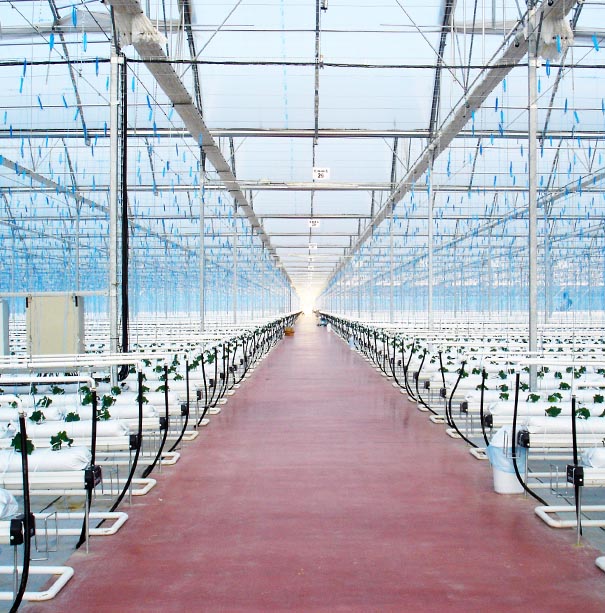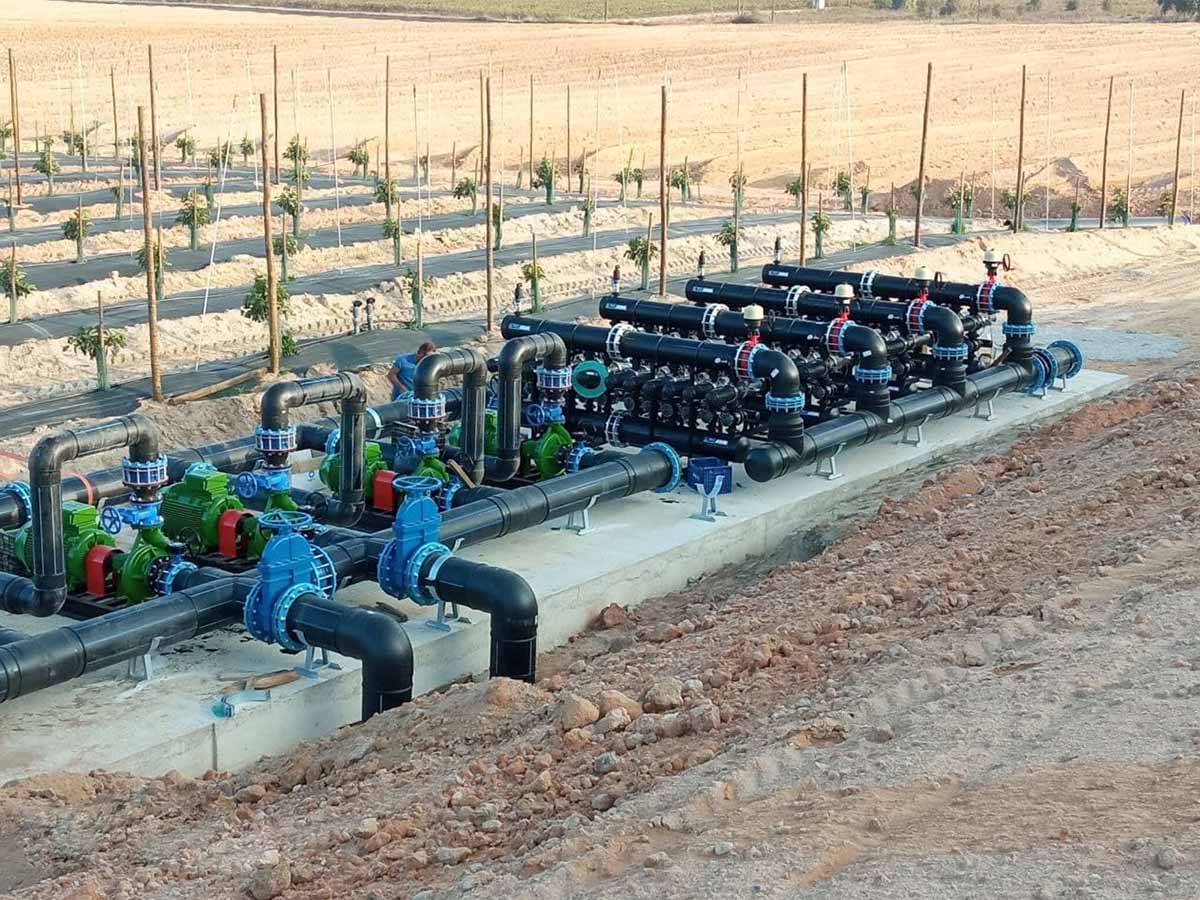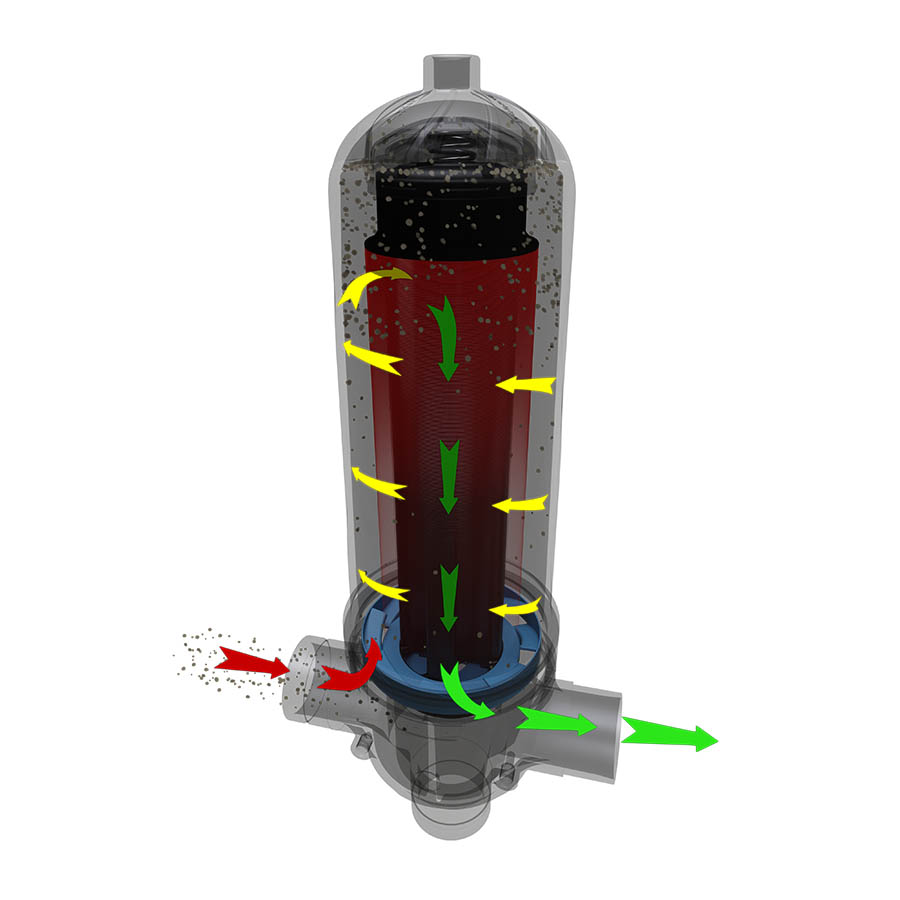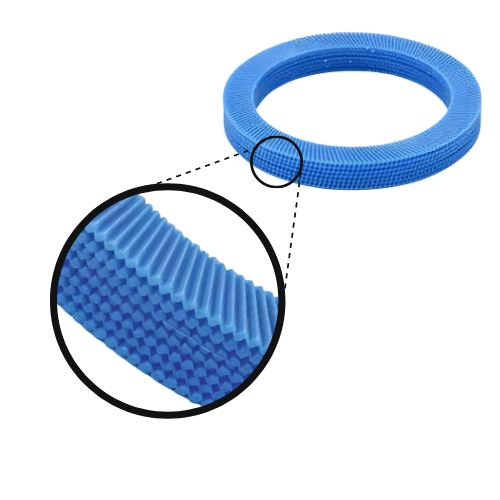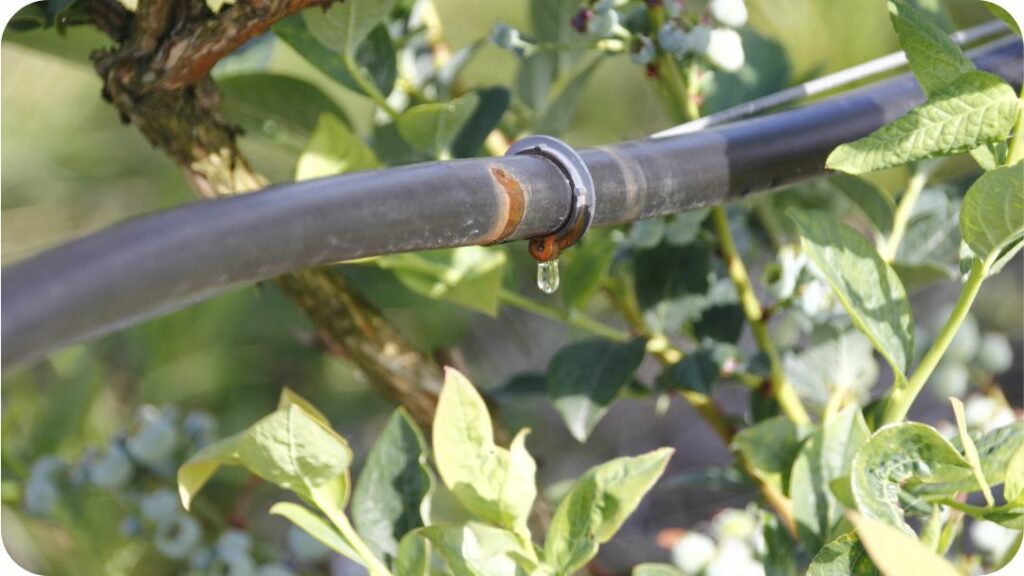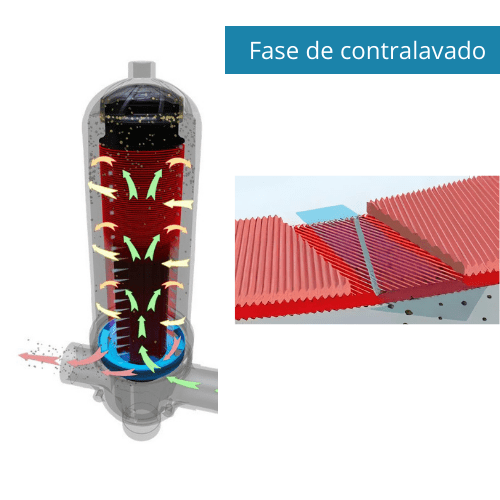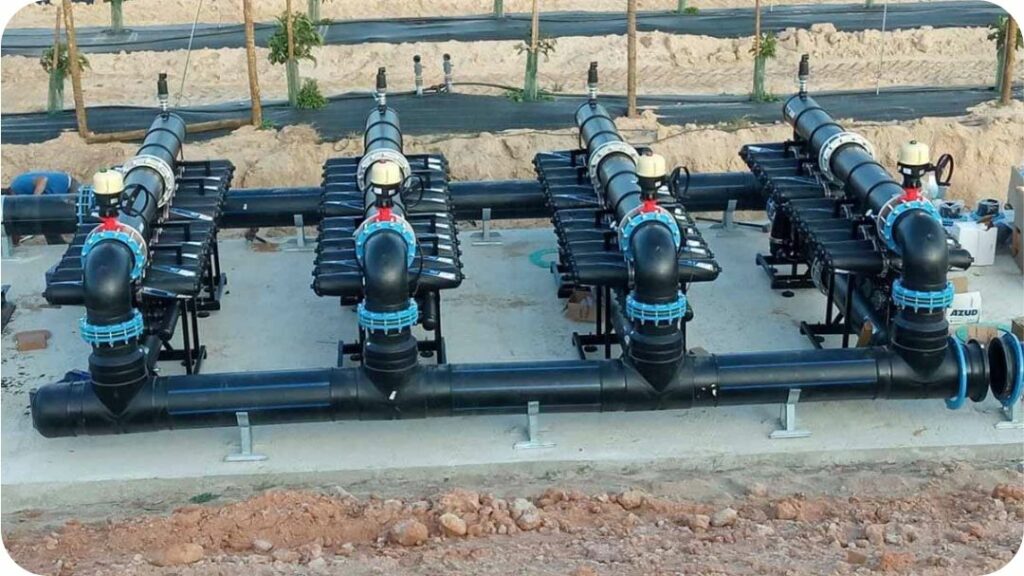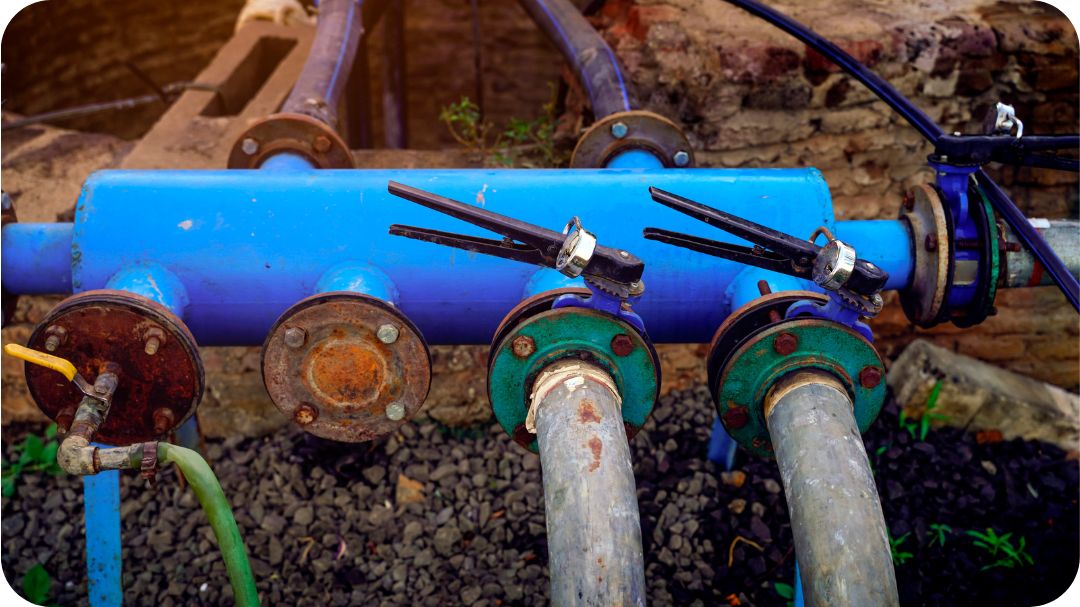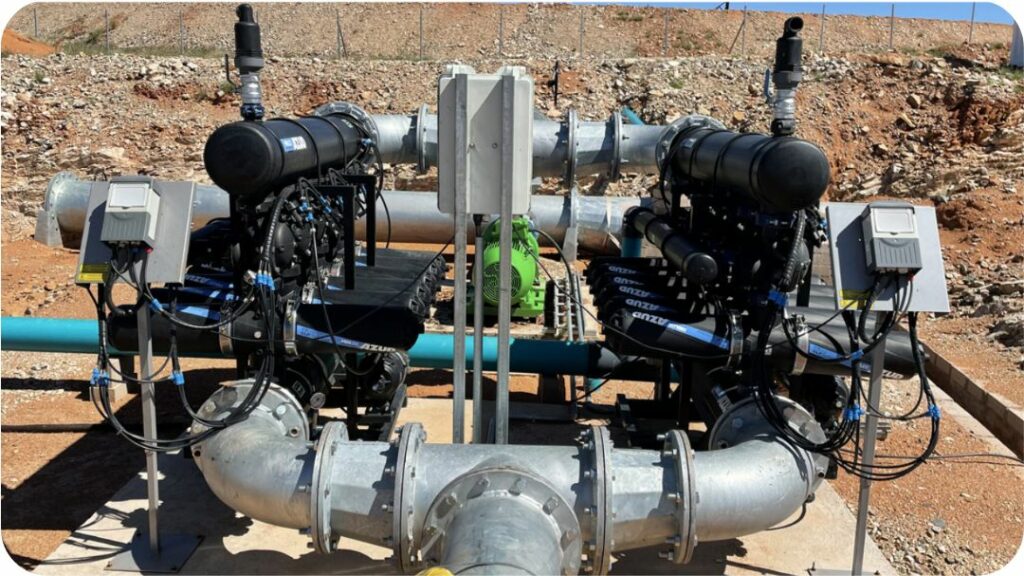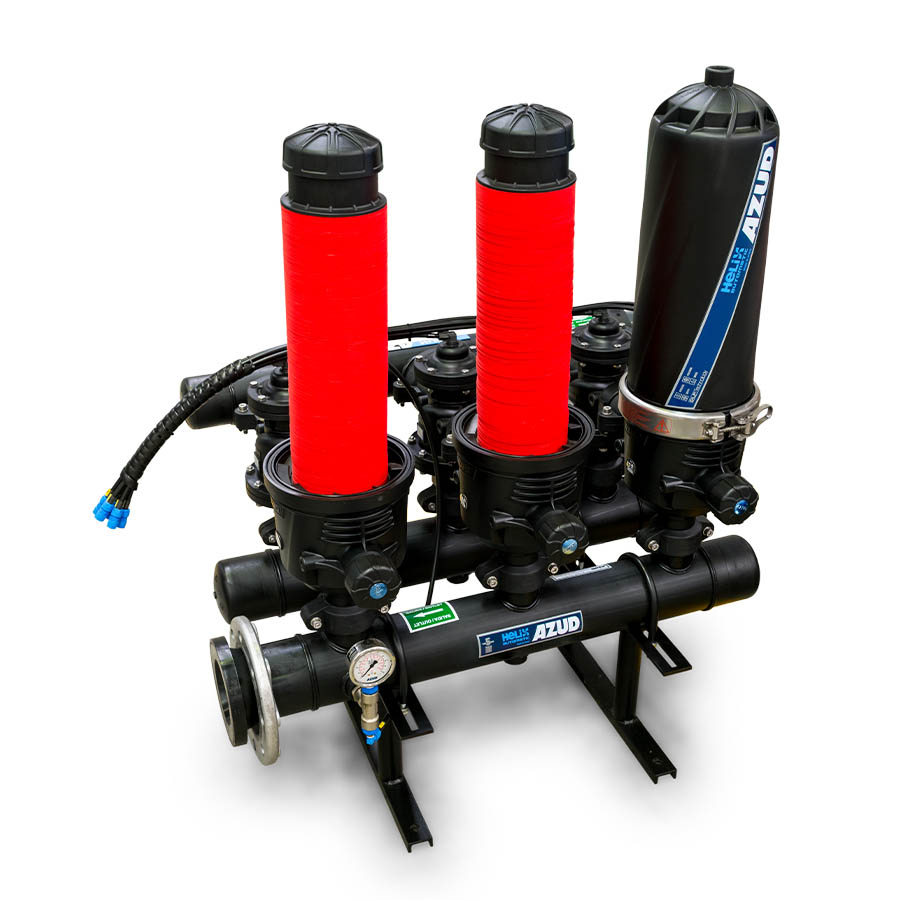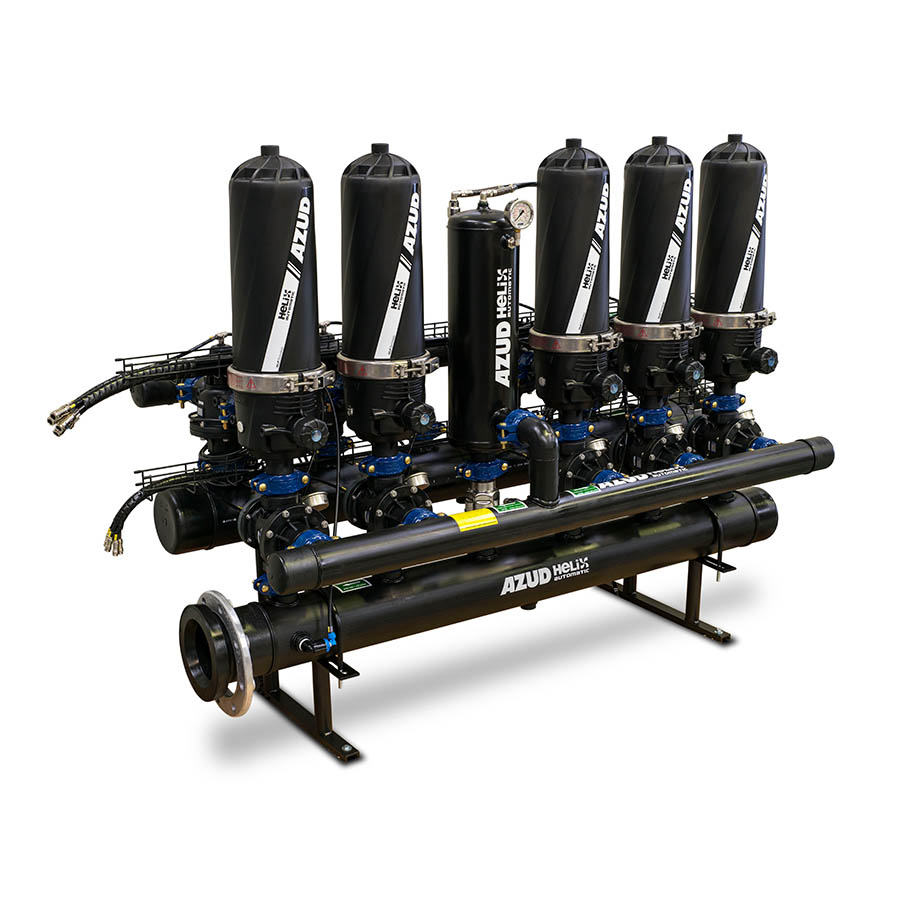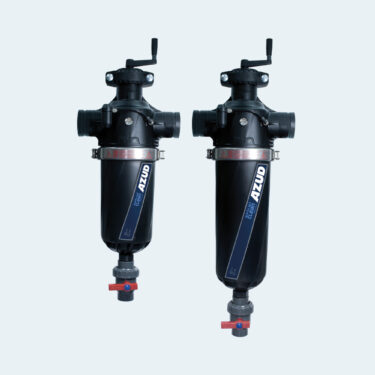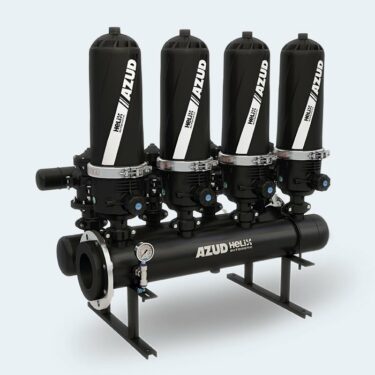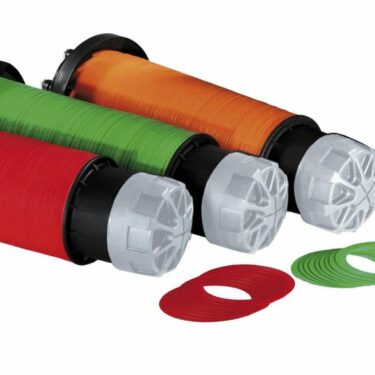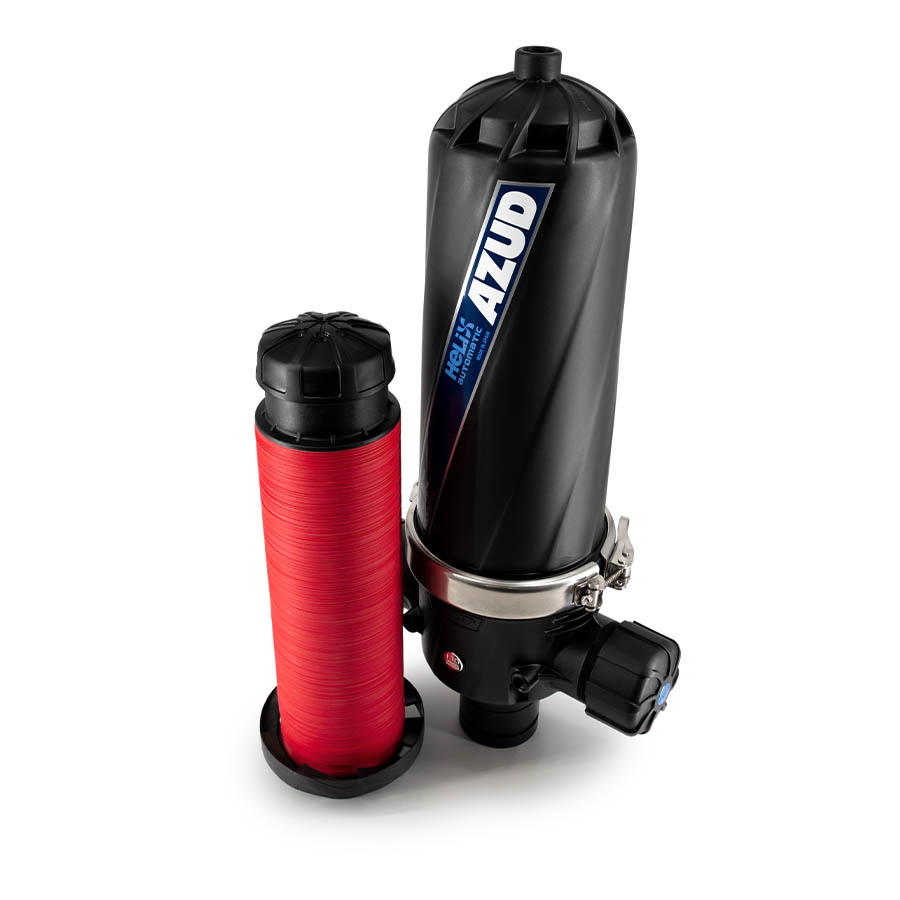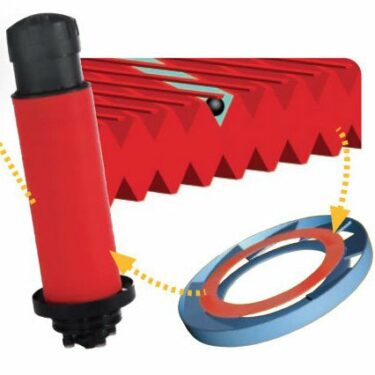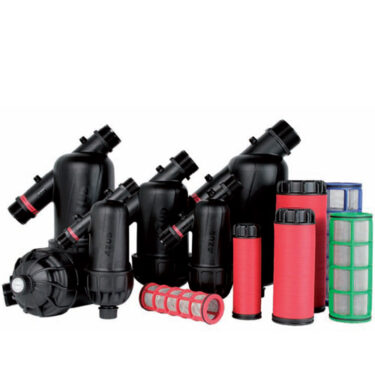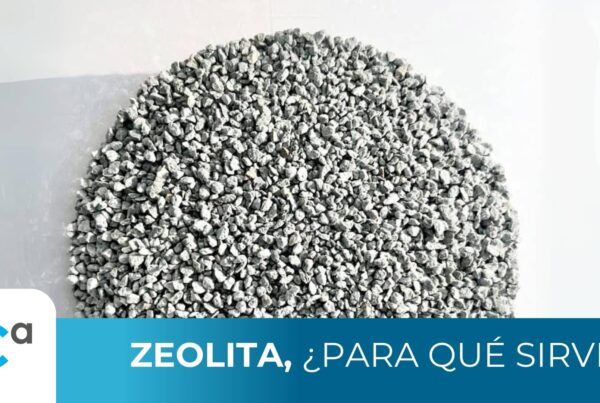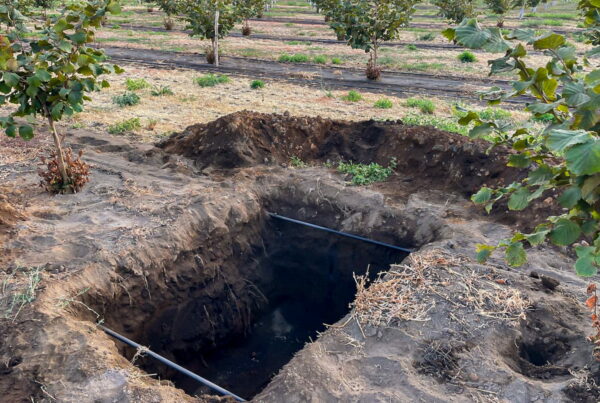Drip irrigation is an efficient irrigation technique that has revolutionized agriculture worldwide. This method allows a more efficient use of water by applying it directly to the root zone of the plants, which reduces evaporation and water waste. However, to ensure optimum performance and long life of the drip irrigation system, an efficient filtration system is essential. In this article, we will focus on the filter for drip irrigation with discs or rings, especially in places with water shortage, for a better use of the water resource.
How does a drip irrigation filter work?
A filter is a device designed to remove solid particles from liquid streams, commonly drinking water or tertiary wastewater. A drip irrigation filter can be used to remove unwanted solid particles that can clog irrigation nozzles or hoses.
A filter can be used to separate suspended particles from a liquid passing through it by mechanical processes such as granular media bed filtration, cartridge filters or disc filters.
There are many types of filters, with different manufacturing methods, choice of materials and designs depending on cost and flow requirements. Filters can be classified according to their method of operation into sand filters, diatomaceous earth filters, cartridge filters, disc filters, bag filters, etc.
Filters can also be classified according to the type of material used in the filter media into surface or depth filters.
Mechanical filtration is a process that removes particles from liquids by passing them through some type of porous media (e.g. sand). This method is commonly used in water purification systems, such as drinking water treatment plants or drip irrigation filter systems.
Disc drip irrigation filters are an essential technology in modern agriculture, especially in efficient and sustainable irrigation systems. These filters are essential to ensure water quality and protect irrigation emitters, such as drippers, from clogging and premature wear. The following are some features and benefits of disc filters in drip irrigation.
A disc or ring filter is a type of filter most commonly used in drip irrigation systems to remove solid particles and sediment from the water before it reaches the irrigation emitters. These filters are composed of a series of stacked rings or discs that, when compressed, form a filtering mesh. Filtration takes place as the water flows through the grooves formed by the rings, retaining the solid particles on their surface.
Ring filtration is especially useful in places where water is scarce, as it allows a better use of the water resource by avoiding clogging of drip irrigation emitters and ensuring a constant and uniform flow of water.
Characteristics of a filter for disc drip irrigation:
- Stacked disc design: A drip irrigation filter with the disc system uses a series of stacked discs, usually made of strong plastic, which are compressed together to form a filter mesh. The surface of each disc has a series of grooves which, when compressed, retain the solid particles present in the water between them.
- Variable filtration grades: Disc filters are available in different filtration grades, ranging from 100 to 400 microns. This allows the filter to be adapted to the specific needs of each irrigation system and to the quality of the available water.
- Self-cleaning and maintenance: The disc drip irrigation filter has self-cleaning systems that facilitate its maintenance and prolong its useful life. These systems are usually hydraulic and allow the removal of particles trapped in the discs without the need to disassemble the filter.
A disc drip irrigation filter is an essential tool in modern agriculture, as they protect irrigation emitters, improve water quality and contribute to resource saving and fertilizer application efficiency.
But what about drip irrigation?
But first let’s see what drip irrigation is in order to explain the filters. Drip irrigation is a technology used to apply water, nutrients and pesticides to low-density crops through a network of small-diameter polyethylene or polypropylene pipes placed on the soil surface. Typically, water is pressurized and distributed through drip lines placed on the soil surface prior to mulching (e.g., straw mulch). Drip irrigation is often used in horticulture, viticulture and orchard cultivation, for growing vegetables and for landscaping. It has also been used in other applications, such as livestock water and industrial processes.
The flow rate of drip systems should be maintained between 1 and 4 gallons per minute (GPM) depending on the type of plant, time of year and other factors such as slope, wind speed and application volume required for adequate coverage of target areas.
This method of irrigation allows water to be distributed evenly over a large area without wasting water or creating puddles in low spots on the ground.
Drip irrigation is a method of supplying water to the roots of plants by gravity or by means of pumps. Drip emitters are placed at regular intervals along the line that carries water from an elevated tank or reservoir through hoses to the root zone of the plants being irrigated. The shallower the water source, the more sediment it may contain than deep wells.
Which drip irrigation filters are most commonly used for agricultural water?
Drip irrigation filters filter particles from water supplied from surface water such as rivers, lakes, or wells. This helps ensure that only clean water is used for your plants, and also prevents clogged pipes or irrigation nozzles. The filter can be made of a variety of materials depending on the type of work you need to do; some are designed specifically for use with drip irrigation systems.
But in our experience for filtration of large flows in irrigation of large extensions of sowing; they are the disc filters . Here are some of the advantages of disc filtration in agriculture for drip irrigation.
Advantages of using disc filtration for drip irrigation water:
Disc filters are an excellent choice to ensure efficient irrigation and protect irrigation system components. Listed below are some key advantages of using disc filters in drip irrigation systems:
High filtration efficiency:
Disc filters are composed of a series of stacked discs that retain solid particles present in the water at depth. The discs have a grooved surface that effectively traps particles, providing high filtration efficiency and better quality irrigation water. A disc drip irrigation filter removes solid particles and sediment from the water, reducing the possibility of chemical precipitates that can affect irrigation efficiency and soil and plant health.
Prevention of obstructions in nozzles:
In drip irrigation systems, clogged emitters can cause water distribution problems and affect irrigation uniformity. Disc filters prevent solid particles from entering the system, reducing the risk of clogging and ensuring uniform irrigation in the field. By filtering the water before it reaches the drippers and premature wear of the emitters.
Easy maintenance and cleaning:
Disc filters are easy to maintain and clean. Most disc filters have a backwash system that allows easy removal of particles trapped in the discs without disassembling the filter. This simplifies the cleaning process and reduces irrigation system downtime.
Water and energy savings:
By keeping the drip irrigation system free of clogs and running efficiently, disc filters contribute to more efficient water use, especially in areas where water is scarce and energy savings. Since less pressure is required to push water through a clog-free system. This results in lower consumption of water resources and can reduce operating costs.
Protection of system components:
Disc filters protect drip irrigation system components, such as valves, pressure regulators and emitters, by preventing the entry of solid particles. This reduces component wear and prolongs component life, which in turn reduces maintenance and replacement costs.
Space saving for filter placement:
Disc filtration systems are more compact than conventional deep bed or gravity systems with false bottom, which require a fixed installation and are difficult to grow. Especially if more water volume filtration capacity is required in the future for drip irrigation filters.
In summary, disc filters are an effective solution to ensure high quality drip irrigation in the agricultural industry. By using the drip irrigation filter, farmers can improve irrigation efficiency, reduce operating costs and protect system components, which in turn contributes to increased productivity and profitability.
More information on water filtration by discs:
Source: Types of irrigation drippers and their differences – AZUD
If you need more information or a quote, please contact us:
-
AZUD HELIX AUTOMATIC 4DCL DLP agricultural and industrial irrigation filter
Add to quote -
FT200 AA automatic compressed air assisted disk filter
Add to quote -
AZUD Helix automatic disc filter series 300 DLP
Add to quote -
Irrigation water filter – AZUD SPIRAL CLEAN
Add to quote -
Filters for cooling towers or refrigeration towers
Add to quote -
AZUD Helix automatic disc filter series 200 DLP
Add to quote -
AZUD LCM Disc Filter Manual
Add to quote -
AZUD Helix automatic disc filter series 201
Add to quote -
AZUD Helix System manual, washable water filter
Add to quote -
Water filter AZUD Modular 100 washable for manual cleaning
Add to quote
Drip irrigation filters frequently asked questions
What is a disc or ring filter for drip irrigation?
A disc or ring filter is a device used in drip irrigation systems to remove solid particles and sediment from the water before it reaches the irrigation emitters. These filters are composed of a series of stacked discs or rings that, when compressed, form a filtering mesh.
Why is it important to use a filter in a drip irrigation system?
The use of a filter in a drip irrigation system is essential to prevent clogging of the emitters and to ensure a constant and uniform flow of water. In addition, an efficient filter allows a better use of water resources and contributes to the sustainability and productivity of agriculture.
How does a disc or ring filter work?
Water flows through the grooves formed by the stacked rings or discs, retaining solid particles on their surface. Filtration takes place as the water passes through the mesh formed by the rings, removing particles of different sizes.
Is there a difference between a disc filter and a ring filter?
They are practically synonymous, in some regions they may be called differently, but the design of the filter elements is the same. Disc or ring filters use stacked discs to form the filter mesh.
How is a disc or ring filter cleaned and maintained?
To clean a disc or ring filter, it is necessary to disassemble the filter and wash the rings or discs with pressurized water to remove trapped particles. Some models have automatic cleaning systems that make the process even easier.
How often should a disc or ring filter be cleaned?
The frequency of cleaning depends on the level of sediment and solid particles present in the water and the use of the irrigation system. If it is an automatic system, a difference in inlet pressure triggers the self-cleaning system. For periodic maintenance, it is recommended to check and clean the filter periodically, for example, every 2-4 weeks, or when a decrease in the performance of the irrigation system is observed.
What is the service life of a disc or ring filter?
The service life of a disc or ring filter depends on the material of manufacture, conditions of use and proper maintenance. With regular maintenance and proper use, these filters can last for many years.
What is the particle size that can be retained by a disc or ring filter?
The particle size that a disc or ring filter can retain depends on the degree of filtration of the filter, which is measured in microns. Disc and ring filters are available in different filtration grades, ranging from 20 to 200 microns. For irrigation, 130 micron filtration is typically used.
How do I select the right disc or ring filter for my drip irrigation system?
The selection of the appropriate filter depends on factors such as the size of the particles present in the water, the required flow rate and the size of the irrigation emitters. It is recommended that you consult with a professional or irrigation system supplier for advice on the most appropriate filter for your system.
Where is a disc or ring filter installed in a drip irrigation system?
